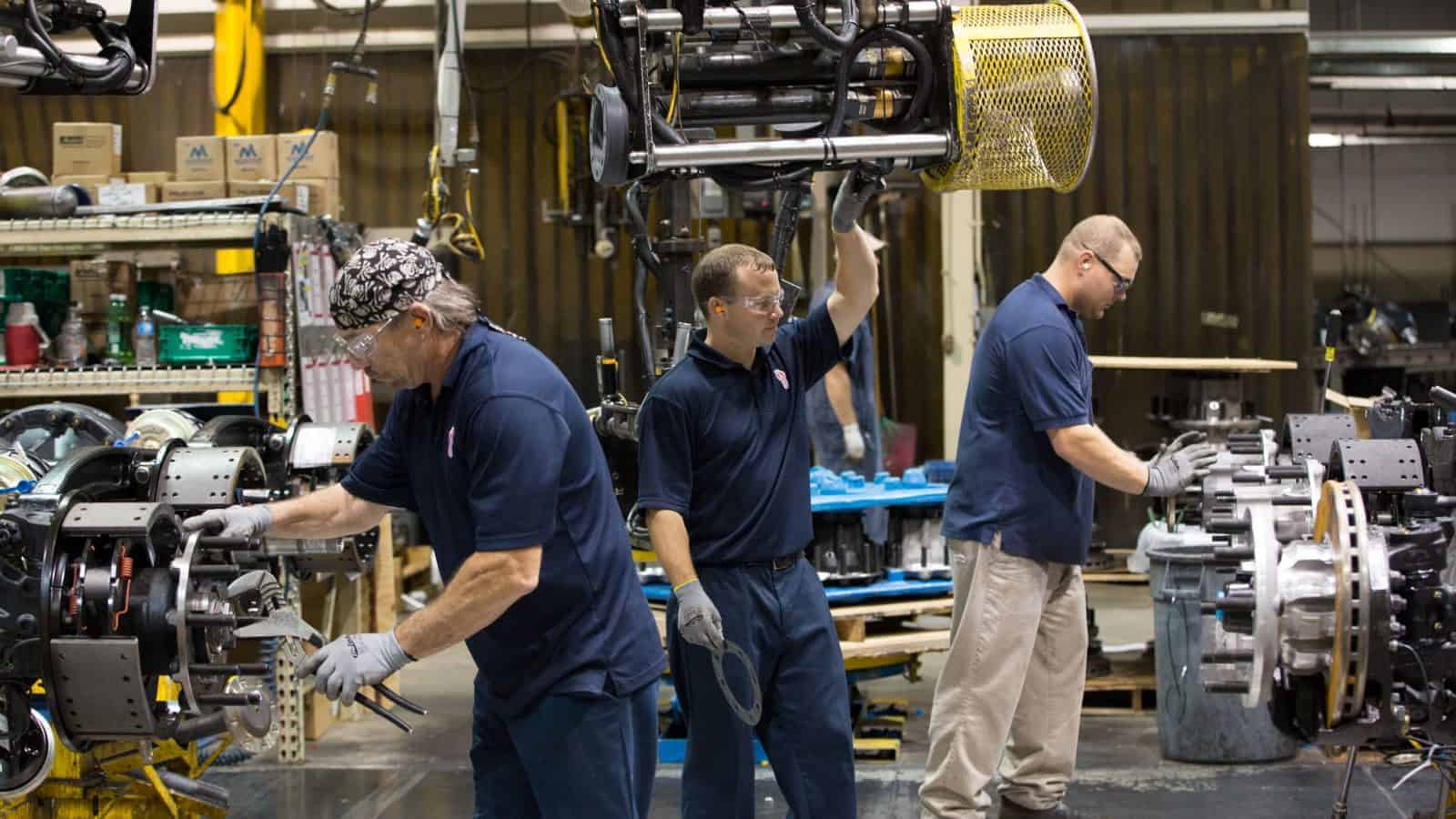Q&A: The Looming 2025 Tax Challenge
Visit Manufacturing Wins
VISITThe NAM recently launched “Manufacturing Wins,” the manufacturing industry’s campaign to preserve the benefits of the 2017 tax reforms that are currently scheduled to disappear in 2025—particularly those tax incentives that make it easier for small manufacturers to hire employees and raise wages, invest in equipment, grow their businesses and contribute more to their communities.
NAM Vice President of Domestic Policy Charles Crain explains what’s at stake in 2025 and how manufacturers can get involved in the effort to prevent tax increases.
Q: Manufacturers are facing “tax Armageddon” at the end of 2025. Can you explain what’s happening?
Crain: Tax reform in 2017 was rocket fuel for manufacturers, leading to record job creation, capital investment and economic growth. For example, manufacturing production grew 2.7% in 2018, with December 2018 being the best month for manufacturing output since May 2008. Manufacturing capital spending grew 4.5% and 5.7% in 2018 and 2019, respectively—this shows the direct impact of pro-growth tax incentives on manufacturers investing in new equipment and facilities. But many of tax reform’s pro-manufacturing provisions will expire at the end of 2025. If these provisions are allowed to expire, virtually every manufacturer will face devastating tax increases.
Q: What policies will sunset in 2025, and how will their expiration impact SMMs?
Crain: For small manufacturers organized as pass-throughs—meaning the business’s owners pay tax on the business’s income on their personal returns—two key changes are coming down the pike. First, their tax rate will increase, from 37% to 39.6%. Second, they will lose the pass-through deduction, which provides a tax deduction equal to 20% of the business’s income. In combination, these tax hikes will increase pass-throughs’ effective tax rate by at least 10 percentage points (from 29.6% to 39.6%), resulting in significantly less capital available for equipment purchases, job creation and community investment.
For small manufacturers organized as corporations, the NAM is fighting to prevent any increases in the corporate tax rate. The corporate rate decreased from 35% to 21% in 2017 and is not scheduled to expire—but President Joe Biden has proposed increasing the rate to 28%. The NAM remains staunchly opposed to corporate tax rate increases that punish manufacturers for investing and creating jobs here in America.
For family-owned small manufacturers, their estate tax obligations are scheduled to increase. Tax reform doubled the value of assets that can be passed on without incurring the estate tax; at the end of 2025, the estate tax exemption threshold is scheduled to be reduced by half. The NAM is calling on Congress to maintain the increased exemption—or to repeal the estate tax entirely, preventing family-owned businesses from being sold for parts to pay a tax bill when a loved one passes away.
Q: What else is at stake in 2025?
Crain: Manufacturers of all sizes continue to face uncertainty about the tax code’s treatment of R&D expenses, capital equipment purchases and interest on business loans. Immediate R&D expensing—which allows manufacturers to write off the entire cost of R&D spending in the year incurred—expired in 2022. So did a tax reform provision that allowed businesses to deduct more of the interest they pay on loans when they debt finance a project. And in 2023, 100% accelerated depreciation—which reduces the cost of capital equipment purchases—began to phase down. These expired provisions are vital to manufacturing growth, and the NAM is working to restore and extend them as Congress prepares for the 2025 tax fight.
Q: How can SMMs learn more?
Crain: The NAM recently published “What’s At Stake: Manufacturers Face Devastating Tax Increases in 2025,” which highlights the tax reform provisions that will expire at the end of 2025. The NAM calls on Congress to act to prevent these expirations from stunting manufacturing job creation, growth and innovation.
Q: How can SMMs get involved?
Crain: Manufacturing voices are crucial to the 2025 tax fight. NAM members with a story to tell about the impact of 2017 tax reform on their business—or the damage that the 2025 expirations could inflict—are encouraged to reach out to their NAM membership advisor or to the NAM tax team.
You can also take a few minutes to record a video testimonial calling on Congress to prevent devastating tax hikes on manufacturers. Instructions for submitting a video testimonial are available here—it’s as easy as having a coworker use a smartphone to film a video of you on your shop floor! Completed testimonials can be emailed to the Manufacturing Wins team to be posted to our campaign site: NAM.org/MfgWins
NAM, Allies to Biden: Intervene in Port Talks Now
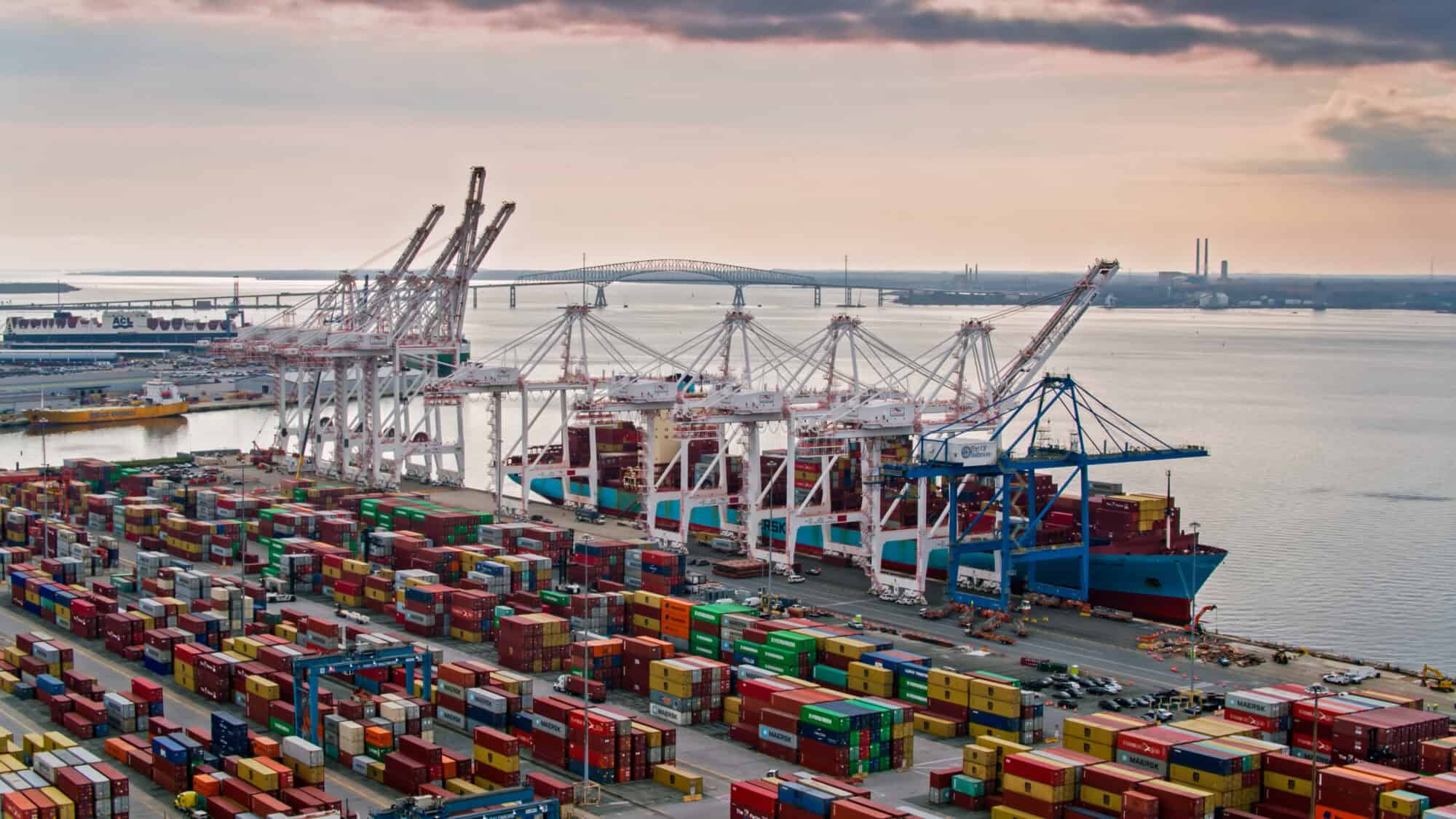
A labor strike on the U.S. East and Gulf Coast strike would have dire consequences for the maritime supply chain, the NAM and partner organizations told the Biden administration this week—which is why it’s vital the administration intervene now to restart stalled labor negotiations between dockworkers and an alliance of port operators and ocean carriers.
What’s going on: “Earlier this month, contract negotiations broke down between the International Longshoremen’s Association and the US Maritime Alliance,” Bloomberg Government (subscription) reports. “The current agreement, which covers about 45,000 dockworkers at facilities including six of the 10 busiest US ports, expires Sept. 30.”
- The NAM and more than 150 other industry organizations on Wednesday urged the administration to “immediately work with both parties to resume contract negotiations and ensure there is no disruption to port operations and cargo fluidity.”
Why it’s important: Other global shipping-related setbacks and threats mean the U.S. cannot withstand another challenge, the groups said. Continued Houthi terrorist attacks on commercial ships in the Middle East have resulted in “congestion and lack of equipment at overseas ports, carrier capacity issues as they continue to divert vessels away from the Red Sea and increased freight rates.”
Precedent set: Last September, after 14 months of negotiations and several work stoppages and walkouts, West Coast dockworkers reached a labor agreement with the Pacific Maritime Association—following NAM-urged intervention by the Biden administration.
- “We witnessed a significant shift of cargo from the West Coast to the East Coast and Gulf Coast ports because of the challenges and uncertainty during the last West Coast port labor negotiations,” said the groups. “While much of that business has remained at the East Coast and Gulf Coast ports, we are starting to see a shift back to West Coast gateways, where a long-term contract is in place, especially as we enter the busy peak shipping season.”
Manufacturers Victorious Over SEC in Fifth Circuit Proxy Firm Case
Decision confirms that federal agencies are bound by the rule of law, even as administrations change
Washington, D.C.–Yesterday, the U.S. Court of Appeals for the Fifth Circuit ruled in the National Association of Manufacturers’ favor in NAM v. SEC, overturning the Securities and Exchange Commission’s rescission of critical provisions of its 2020 proxy advisory firm rule. NAM Chief Legal Officer Linda Kelly released the following statement on the ruling:
“This decision confirms that federal agencies are bound by the rule of law, even as administrations change. Manufacturers depend on the SEC to be a steady regulatory hand at the wheel of America’s world-leading capital markets—an obligation the agency abandoned in rescinding the commonsense, compromise 2020 proxy advisory firm rule.
“The NAM Legal Center is proud to have secured this critical victory, which strikes down the SEC’s unlawful about-face and preserves important provisions from the 2020 rule designed to protect manufacturers and Main Street investors from proxy firms’ outsized influence. We will continue to fight in court to uphold the 2020 rule—and to work with the SEC and with Congress to ensure appropriate oversight of these powerful actors.”
Background:
- The NAM has long called for increased oversight of proxy advisory firms. In July 2020, the SEC issued final regulations to enhance transparency and accountability for proxy firms, a move NAM President Jay Timmons called a “long-sought, major win for the industry and millions of manufacturing workers.” In October 2020, the NAM filed a motion to intervene in ISS v. SEC (ISS’s attempt to overturn the rule) in support of these reforms—a case that is still ongoing in the U.S. Court of Appeals for the D.C. Circuit.
- In June 2021, the SEC announced that it was suspending enforcement of the 2020 rule; the NAM filed suit against the SEC in October 2021 challenging this unlawful suspension. The U.S. District Court for the Western District of Texas ruled in the NAM’s favor in that case, vacating the SEC’s suspension of the rule.
- In July 2022, the SEC rescinded critical portions of the 2020 rule, a move that Timmons said “epitomizes ‘arbitrary and capricious’ rulemaking”; the NAM later filed suit to challenge the rescission. The Fifth Circuit decision overturns the SEC’s 2022 rescission of important provisions that increased transparency into proxy firms’ recommendations.
-NAM-
The National Association of Manufacturers is the largest manufacturing association in the United States, representing small and large manufacturers in every industrial sector and in all 50 states. Manufacturing employs nearly 13 million men and women, contributes $2.89 trillion to the U.S. economy annually and accounts for 53% of private-sector research and development. The NAM is the powerful voice of the manufacturing community and the leading advocate for a policy agenda that helps manufacturers compete in the global economy and create jobs across the United States. For more information about the NAM or to follow us on Twitter and Facebook, please visit www.nam.org.
Manufacturers to Congress: Stop Devastating Tax Increases
Jobs, innovation, investments in America all at risk if tax provisions expire at the end of 2025
Washington, D.C. – The National Association of Manufacturers released its Manufacturers’ Outlook Survey for the second quarter of 2024, which highlights the immediate need for Congress to take action to prevent tax increases that will limit the industry’s ability to create jobs, support their communities and compete in the global economy.
“When Congress passed tax reform, manufacturers in the U.S. invested in their workers and businesses at a level that had never before been seen. In 2018, we experienced the best year for job creation in 21 years and the best year for wage growth in 15,” said NAM President and CEO Jay Timmons. “Tax reform was rocket fuel for our industry, but our latest Manufacturers’ Outlook Survey illustrates our industry’s deep concerns about the reversal of these pro-growth incentives. If Congress does not take action, job creation, wage growth and investments in communities—in short, America’s manufacturing edge—will be at risk, as well as our country’s ability to attract meaningful investments into our economy. The House, the Senate and the White House need to come together to reinstate the critical provisions that have already expired or begun phasing out, and to stand strong to protect those set to expire at the end of 2025.”
Background:
- The NAM released “What’s At Stake: Manufacturers Face Damaging Tax Increases in 2025,” a policy explainer which illustrates the consequences of allowing the pro-growth policies and rates from the Tax Cuts and Jobs Act to expire.
- The “Manufacturing Wins” issue page on NAM.org provides a hub for 2025 tax content, as well as opportunities for manufacturers to share their stories directly with Congress and the administration.
Key Survey Findings:
- If Congress does not act to prevent tax increases, survey respondents say that increased taxes will limit capital investment opportunities (73.0%), decrease job creation (65.4%), increase difficulty competing globally (52.6%) and reduce R&D spending (51.7%).
- Nearly 94% of respondents agree that Congress should act before the end of 2025 to prevent scheduled tax increases on manufacturers.
- In Q2, 71.9% of respondents felt either somewhat or very positive about their company’s outlook, the seventh straight reading below the moving average (74.8%).
- More than 67% of manufacturers cited the inability to attract and retain employees as their top primary challenge, followed by rising health care costs (66.7%), an unfavorable business climate (59.6%) and a weaker domestic economy (56.8%).
The NAM releases these results to the public each quarter. Further information on the survey is available here.
-NAM-
The National Association of Manufacturers is the largest manufacturing association in the United States, representing small and large manufacturers in every industrial sector and in all 50 states. Manufacturing employs nearly 13 million men and women, contributes $2.89 trillion to the U.S. economy annually and accounts for 53% of private-sector research and development. The NAM is the powerful voice of the manufacturing community and the leading advocate for a policy agenda that helps manufacturers compete in the global economy and create jobs across the United States. For more information about the NAM or to follow us on Twitter and Facebook, please visit www.nam.org.
In Search for Workers, One Manufacturer Pulls Out the Stops
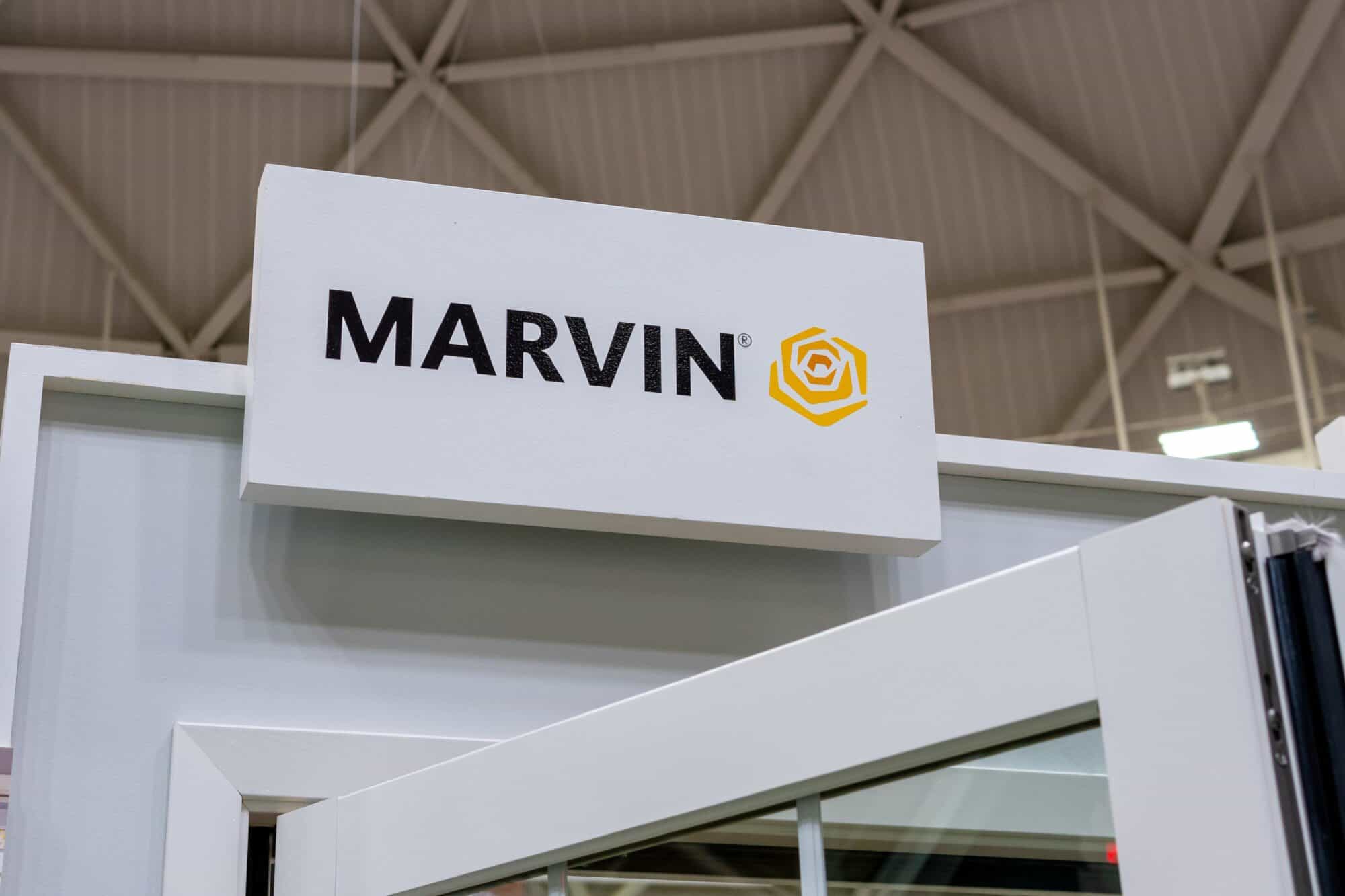
Marvin, a window and door manufacturer based in Warroad, Minnesota, is looking thousands of miles south to fill job openings (The Wall Street Journal, subscription).
What’s going on: Marvin employs about 700 people at its Warroad location. With older-generation workers retiring at the rate of about one employee a week and a town population that hasn’t grown in decades, the company “came up with a recruitment plan called ‘The Path North,’ which aims to find workers in Puerto Rico and Florida willing to uproot their families and settle in a cold northern town”—but it’s proving a difficult sell, even with generous relocation bonuses and temporary housing.
- Unemployment in Puerto Rico and Florida is low, so Marvin is fishing for talent in relatively sparsely populated ponds.
- Of the 115 workers who came from Puerto Rico in the past eight or nine months, just 63 remain at the company.
- Marvin has 10 other locations throughout North America.
Why it’s important: Marvin’s challenge is emblematic of “manufacturing in America today. The U.S. population is barely growing, baby boomers are exiting the workforce,” many young people are unaware of the many advantages of working in manufacturing and “[t]here is little political will for lasting immigration reform that could fill workforce gaps.”
- If current trends continue, the U.S. will have 2.1 million open manufacturing positions by 2030, according to a joint study by Deloitte and the Manufacturing Institute, the NAM’s 501(c)3 workforce development and education affiliate.
Well worth it: Still, for those who come to Marvin, the rewards are significant.
- The company helps employees find permanent housing and is even an investor in a local apartment complex.
- There is job security, too. When orders slowed at one of its factories a few years ago, the company offered cash bonuses to employees willing to relocate to Warroad.
- Marvin has also helped Warroad schools hire Spanish-language translators to assist the children of new hires.
The final say: “Tapping into new talent pools is especially critical in rural areas, whether it’s done via relocation support, engaging second chance populations or participating in initiatives such as the Manufacturing Institute’s Heroes MAKE America program, which is building connections between the military community and the manufacturing industry by bringing in new workers,” said MI President and Executive Director Carolyn Lee. “We need to engage all talent pools to fill the 500,000 jobs in manufacturing today.”
Rep. Walberg Visits Madsen Steel Wire Products to Discuss Tax Priorities
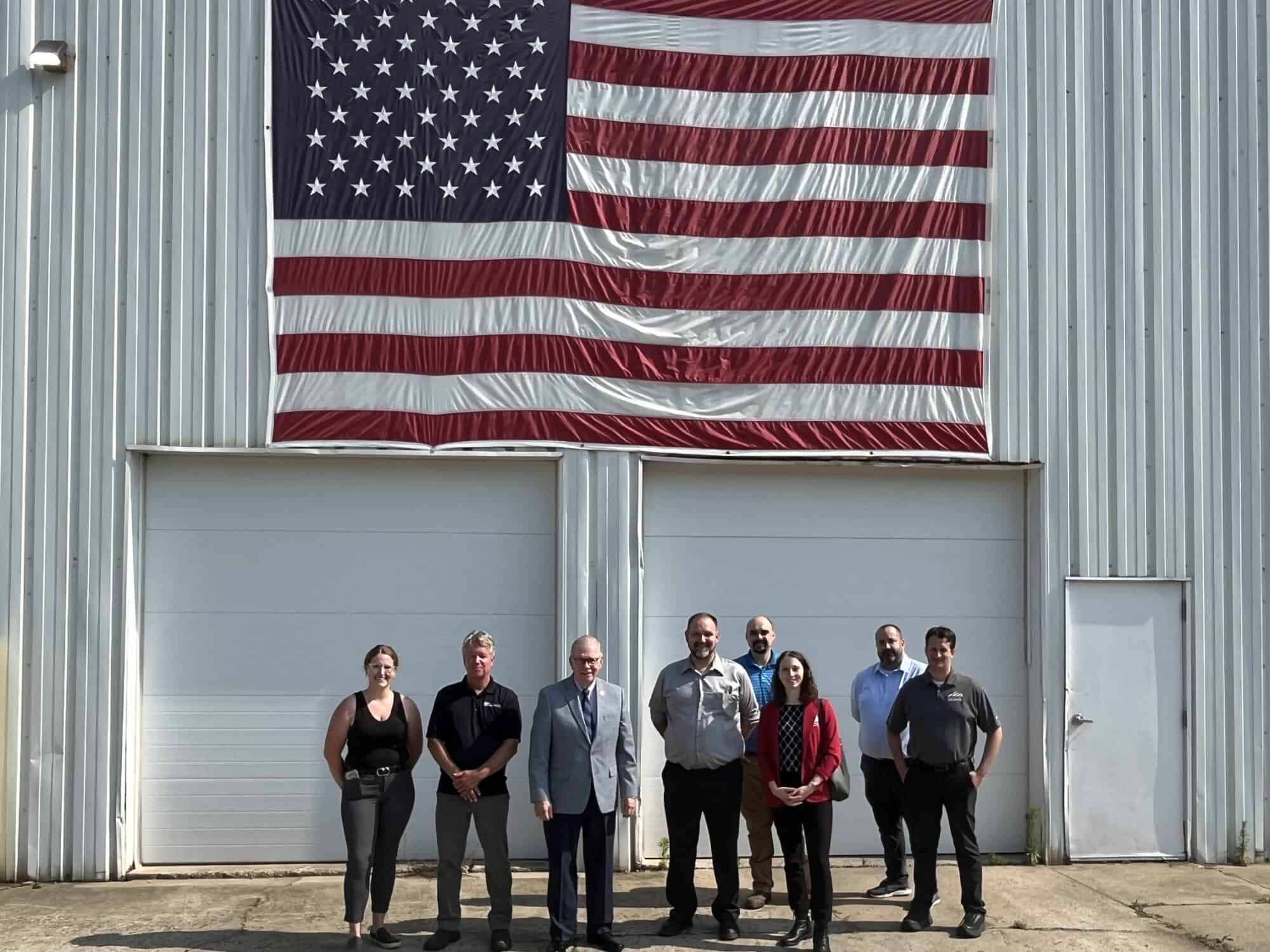
Rep. Tim Walberg (R-MI) recently visited Madsen Steel Wire Products in Bronson, Michigan, to discuss critical tax priorities with company leadership and members of the National Association of Manufacturers.
The visit, led by Madsen Steel Wire Products General Manager Steve Cochran, focused on the importance of maintaining a competitive tax code to support growth and innovation in the manufacturing sector in the face of scheduled expirations of key pro-manufacturing tax policies in 2025. The visit also underscored the essential role manufacturing plays in economic growth and stability.
The topline: During the tour, Rep. Walberg witnessed firsthand the impact of pro-growth tax policies on manufacturers.
- “Visiting Madsen Steel Wire Products reinforced the need for tax policy that supports manufacturing growth and job creation,” Walberg said. “We in Congress must act before the end of 2025 to preserve 2017 tax reform and avoid the devastating impacts to small manufacturers that will come to pass if these pro-growth policies are not preserved.”
A close-up view: Cochran shared the company’s experience with 2017 tax reform, highlighting how tax reform enabled significant investments in new equipment and workforce expansion.
- “Tax reform in 2017 was a game-changer for us; it allowed us to invest in our people and technology, driving our competitive edge,” said Cochran. “But the looming expiration of key tax reform provisions creates significant uncertainty for our future planning.”
- “In particular, we face a potential double-whammy as our tax rates are scheduled to increase next year at the same time the pass-through deduction expires—resulting in significant and damaging tax increases for us and other small manufacturers.”
An economic impact: The economic impact of manufacturing on local communities was a central theme of the discussion.
- “Manufacturers like Madsen Steel Wire Products are vital to communities like Bronson,” said Branch County Economic Growth Alliance Director Audrey Tappenden. “Their strength is critical to our local economy and broader industries.”
The big picture: Walberg and Cochran also discussed the broader economic impact of tax reform. The NAM’s recent survey found that 94% of manufacturers believe Congress should act before the end of 2025 to prevent tax increases. The survey also indicated that if tax increases take effect, 73% of manufacturers would limit capital investments and 65% would reduce job creation.
- “Manufacturing is the backbone of our local economy,” said Cochran. “Our ability to invest in new technologies and expand our workforce is dependent on preserving tax reform, which will directly translate to more jobs and better wages for our community.”
The bottom line: “The stakes are high,” said Walberg. “We need to ensure that the tax code continues to support the hardworking men and women in manufacturing. It’s about maintaining a level playing field and ensuring that manufacturers like Madsen Steel Wire Products can thrive—supporting small business growth and the economic health and prosperity of our communities.”
The takeaway: “The NAM launched ‘Manufacturing Wins ’ to preserve tax reform, and Rep. Walberg’s visit to Madsen Steel underscores the critical role of tax policy in driving the success of manufacturers in America,” said NAM Vice President of Domestic Policy Charles Crain. “Congress must act before the end of 2025 to prevent devastating tax increases—bolstering manufacturing across the country and supporting the economic stability and growth of local communities like Bronson, Michigan.”
NAM Launches Campaign to Prevent Tax Increases on Manufacturers
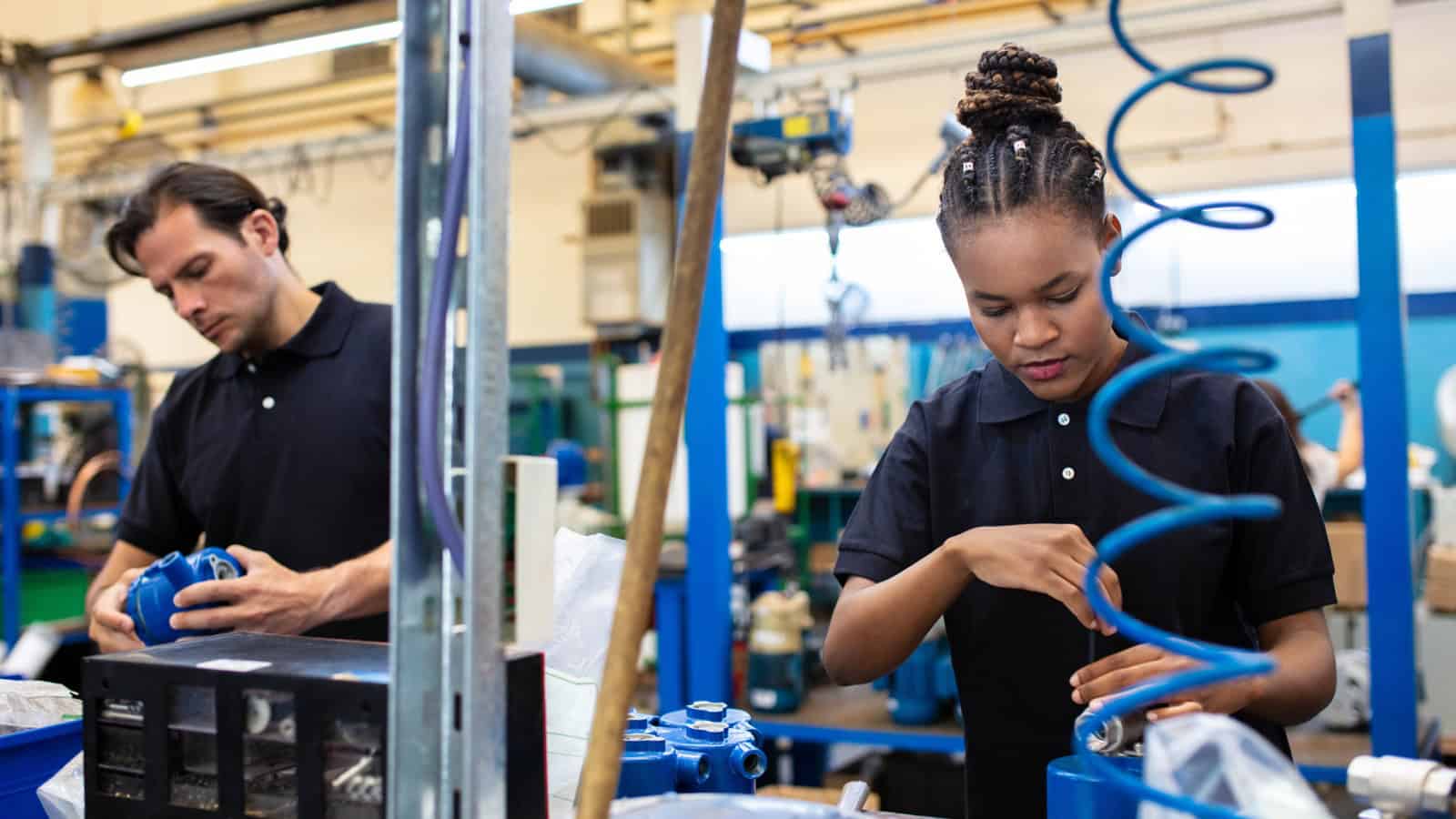
The NAM today launched an industry-wide campaign to educate legislators, candidates and the Biden administration on the urgent need for action to preserve pro-growth tax policies scheduled to expire at the end of next year.
What’s going on: Critical reforms from the 2017 Tax Cuts and Jobs Act will expire at the end of 2025. The NAM’s Manufacturing Wins campaign is designed to ensure that Congress preserves 2017 tax reform in its entirety to avoid significant economic damage in the manufacturing sector and across the broader economy.
What’s at stake: If they do not, at the end of 2025, virtually all manufacturers will face devastating tax increases that will cost manufacturing jobs, stifle growth and stunt innovation. Small manufacturers, which are often organized as pass-through businesses that pay tax at the individual tax rates, face increases in their income taxes and a loss of tax reform’s 20% pass-through deduction.
- Family-owned manufacturers will experience changes to the estate tax that subject more of their assets to taxation upon the death of a loved one.
- Investments in manufacturing growth will continue to be delayed without action to restore immediate R&D expensing, accelerated depreciation for capital equipment purchases and a pro-growth interest deductibility standard.
Learn more: What’s at Stake: Manufacturers Face Devastating Tax Increases in 2025 explores the tax provisions up for debate next year—and highlights the NAM’s policy suggestions for Congress to prevent devastating tax hikes.
Manufacturers at risk: A recent NAM survey found that if Congress fails to prevent the 2025 expirations, 73% of manufacturers would be forced to limit their capital investments, 65% would have to reduce job creation and 52% would spend less on R&D. Further, 93% of pass-through manufacturers said that the loss of the pass-through deduction would harm their ability to grow, create jobs and invest in their business.
- Some 94% of manufacturers believe Congress should act before the end of 2025 to prevent these tax increases.
The last word: “Manufacturers across the country promised to take tax reform’s pro-growth provisions and ensure they had a direct positive impact on American lives,” said NAM Small and Medium Manufacturers Group Chair Courtney Silver, president and owner of precision machining company Ketchie.
- Silver has made the case repeatedly that these tax priorities are critical for the success of small and medium-sized manufacturers in the United States.
- “We kept our promises. We created jobs, we purchased equipment and we gave back to our communities. I urge Congress to build on the promise of tax reform to enable manufacturers to do even more.”
Manufacturers Mourn Passing of Former Association Leader Dirk Van Dongen
Washington, D.C. – Following the passing of Dirk Van Dongen, the former CEO of the National Association of Wholesaler-Distributors, National Association of Manufacturers President and CEO Jay Timmons released the following statement:
“Dirk Van Dongen was a Washington legend. For nearly half a century, he led the NAW to be a powerful convener of the business community, advocating for policies that made manufacturing in America more competitive in a global economy. But he was far more than the leader of a single association. He was revered as a respected dean of the association CEO community. I feel enormously grateful to have considered him a mentor and friend and to have received a few coveted invitations to join him at his table at his favorite D.C. bistro, Equinox.
“Dirk believed wholeheartedly in the power of free enterprise to make life better for everyone. He fought for sound tax policy and many shared priorities to enhance the competitiveness of manufacturing, as part of a larger mission to grow our industry and the U.S. economy. His ability to work with both sides of the aisle and get things done distinguished him as a business leader. Over and over again, Dirk proved why associations are indispensable voices in our society.
“Dirk’s best life lesson that he imparted effortlessly was to be honest, direct, upfront and authentic. You never had to wonder where Dirk stood or what he believed was the right course of action.
“Our thoughts and prayers are with his beloved wife, Maryann, and his daughters Rachel and Marisa during this difficult time.”
-NAM-
The National Association of Manufacturers is the largest manufacturing association in the United States, representing small and large manufacturers in every industrial sector and in all 50 states. Manufacturing employs nearly 13 million men and women, contributes $2.89 trillion to the U.S. economy annually and accounts for 53% of private-sector research and development. The NAM is the powerful voice of the manufacturing community and the leading advocate for a policy agenda that helps manufacturers compete in the global economy and create jobs across the United States. For more information about the NAM or to follow us on Twitter and Facebook, please visit www.nam.org.
Texas Sues to Block DOL Overtime Rule

Texas has filed suit in an effort to vacate a Biden administration regulation that would make millions more workers eligible for overtime pay (Reuters, subscription).
What’s going on: “Republican Texas Attorney General Ken Paxton in a complaint filed in Sherman, Texas, federal court on Monday said the rule violates federal wage law by basing eligibility for overtime on how much workers are paid rather than the duties they perform.”
- The expanded rule, released by the Department of Labor in late April, violates states’ constitutional right to structure the pay of state employees and thus how to allocate their budgets, Texas said.
- Attorneys for the Lone Star State added that the regulation—which the department has said would make about 4 million additional workers eligible for overtime pay—will force states to “eliminate or alter employment relationships and cut or reduce services and programs.”
- Also on Monday in Texas, software company Flint Avenue filed a suit saying “the rule is arbitrary and capricious, and that the DOL lacked the authority to issue the change” (Bloomberg Law, subscription).
What it would do: The expanded rule drastically bumps up the salary threshold for determining a worker’s overtime pay eligibility.
- Under it, starting in 2025, most employees making less than $58,656 will be owed time-and-a-half wages when they work more than 40 hours in a single workweek (Bloomberg Law, subscription).
- The current threshold is about $35,500.
Why it’s important: The new overtime rule “places new constraints on employers, reduces flexibility for the workers who will be reclassified and may force companies to make painful choices that limit both job creation and growth opportunities available to employees,” NAM Managing Vice President of Policy Chris Netram said in April.
- “This … regulatory hurdle will complicate manufacturers’ efforts to fill the millions of jobs our industry is projected to create within a decade.”
NAM Files Suit to Block OSHA “Walkaround” Rule
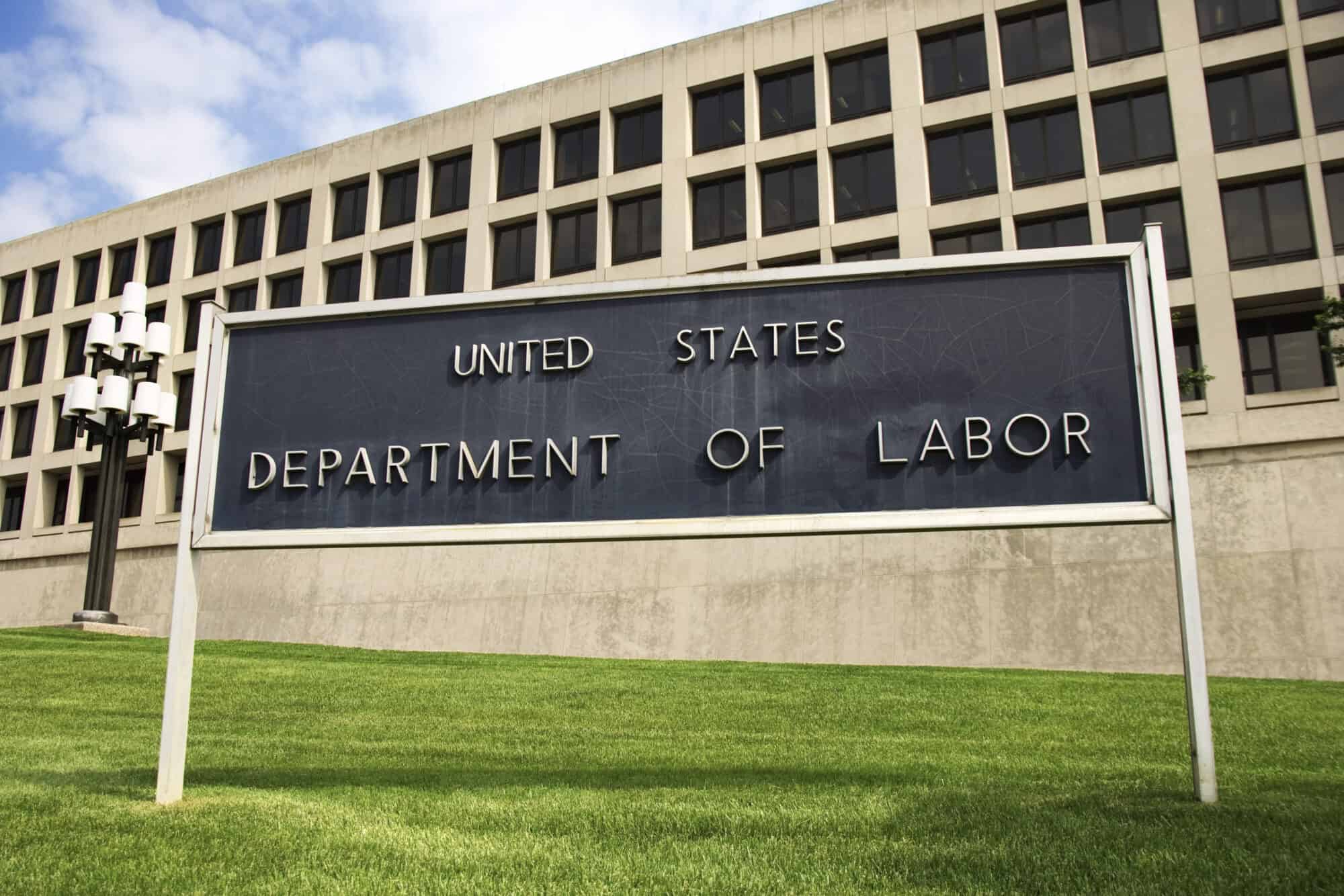
The NAM and allied groups are challenging the U.S. Occupational Safety and Health Administration’s recently finalized “walkaround” rule.
What’s going on: On Tuesday, the NAM, joined by like-minded business organizations, filed a lawsuit in the Western District of Texas to block OSHA’s final rule revising the Worker Walkaround Representative Designation Process. That rule was finalized in April and is set to go into effect May 31.
- The new rule would allow nonemployees—including union representatives, plaintiffs’ attorneys, community organizers and even competitors—to accompany OSHA inspectors on workplace safety inspections.
Why it’s a problem: Not only does the final rule fail to advance the agency’s mission of ensuring workplace safety, but it is beyond the scope of OSHA’s authority. What’s more, it violates businesses’ rights, the NAM said.
- The new regulation “infringes on manufacturers’ right to exclude others from their property, threatens new liabilities and risks compromising manufacturers’ intellectual property. The NAM Legal Center is filing suit to prevent this harm,” NAM Chief Legal Officer Linda Kelly said.
